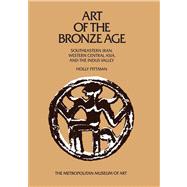Art of the Bronze Age Southeastern Iran, Western Central Asia, and the Indus Valley
, by Pittman, Holly- ISBN: 9780300199550 | 0300199554
- Cover: Paperback
- Copyright: 6/25/2013
The ancient cultures of the Near East have become known to us slowly. Before cuneiform inscriptions were deciphered in the middle of the ninteenth century, we depended on the much later biblical, Greek, and Roman sources to reveal glimpses of the lands, cities, and rulers of ancient Mesopotamia, the land between the Tigris and the Euphrates rivers, traditionally considered the heartland of the ancient Near East. Beyond Mesopotamia, other cultures, mostly without written languages, also thrived. To the west were those of the Levant and Anatolia; to the east, those of the Iranian plateau, Central Asia, and the valley of the Indus River. Until the turn of the twentieth century these apparently peripheral cultures were known by little more than a few odd pieces, objects that floated without context on museum shelves, understood only as historical curiosities. Although there are still large gaps in our understanding, our knowledge about these regions has increased greatly, and we now know that major independent, complex cultures thrived there, not peripheral to others, but core areas themselves.
With the opening of the permanent installation of the galleries of ancient Near Eastern art, visitors to the Metropolitan Museum are able to see ancient artifacts and works of art from these lands far from Mesopotamia. This publication is meant to describe objects assigned to regions far to the east of the Tigris and Euphrates where, during the period known as the Middle Bronze Age (about 2500 to 1600 B.C.), cultures thrived in eastern Iran, western Central Asian, and the valley of the Indus River, the inhabitants of each developing a way of life distinguished by its own organization and material culture. [This book was originally published in 1984 and has gone out of print. This edition is a print-on-demand version of the original book.]







